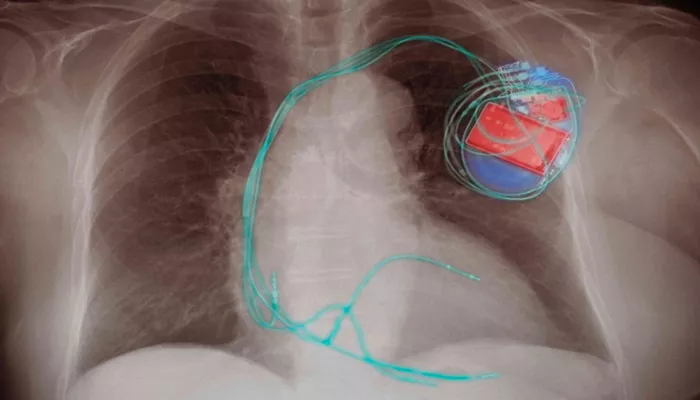New research suggests that high temperatures significantly increase the risk of atrial arrhythmias in patients with cardiac implantable electronic devices. The study, presented by Dr. Barrak Alahmad from Harvard T.H. Chan School of Public Health at the American Heart Association (AHA) 2024 Scientific Sessions, indicates that the likelihood of atrial fibrillation (AF) or atrial tachycardia (AT) rises notably when temperatures exceed 86°F, compared to a baseline of 66°F.
The odds ratios for experiencing AF or AT escalate sharply as temperatures climb above 100°F, reaching levels of 2.24 or higher. This investigation is considered one of the largest studies examining the relationship between environmental factors and arrhythmias, analyzing data from over 3,000 patients across more than 100 U.S. cities.
While the study found no significant connection between hot temperatures and ventricular arrhythmias, there was a suggestive association with extreme cold. Alahmad emphasized that these findings are preliminary and that further research is necessary to solidify the links between temperature extremes and cardiac events.
In light of these results, Alahmad advocates for a precautionary approach. He urges high-risk individuals to take extra care during extreme heat events while further investigations are conducted to determine effective clinical interventions.
The implications of rising global temperatures due to climate change raise concerns about increasing rates of atrial arrhythmias.
Established risk factors for these conditions include smoking and alcohol consumption, but extreme heat may emerge as a new risk factor.
Previous studies have shown that high temperatures can adversely affect cardiovascular health, correlating with increased rates of cardiovascular deaths during extreme heat events. To explore this further, researchers used data from Medtronic’s Product Surveillance Registry, focusing on patients who received implantable cardioverter-defibrillators or cardiac resynchronization therapy-defibrillators from January 2016 to April 2023.
The analysis revealed that episodes of AF or AT were significantly more common as temperatures rose, particularly at thresholds of 102.2°F (OR 2.41), 104°F (OR 2.60), and 105.8°F (OR 2.81). These findings were consistent even when examining episodes lasting longer than 30 seconds.
Alahmad noted that rising external temperatures increase core body temperature, which elevates metabolic demand and heart rate.
Additionally, hot weather can lead to dehydration and loss of electrolytes such as magnesium and potassium, potentially triggering atrial arrhythmias.
Dr. Sanjay Rajagopalan from University Hospitals Harrington Heart & Vascular Institute highlighted the need for additional studies to confirm these findings in broader populations, including those without implanted devices and vulnerable communities.
Rajagopalan also stressed that it is not premature to advise susceptible individuals to seek shelter in air-conditioned environments during extreme heat days. He called for communities to enhance support systems for those at risk during such weather events.
Related topics:


